Fleurs du Mal Magazine


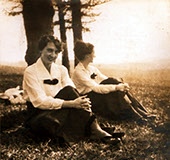
The Poet’s Thrift
My landscape only need comprise low hills,
For these are eminent and limitless
To me. They mean more than my dreams express;
They mean more than my word or deed fulfils.
The slender trees, the tuneless whip-poor-wills,
Impart quite ample themes to loneliness.
I find enough in scant elusiveness
Of springs and little brooks. My spirit thrills
To beauty, unprepared for the sublime.
I wonder, though, when I shall be completed
Even to transcribe these hills? Sometime
This landscape in few lines will show to me
The subtle mysteries I have entreated,
In the simple realm of poetry.
Gladys Cromwell
(1885-1919)
The Poet’s Thrift
From: Songs of the Dust, 1915
• fleursdumal.nl magazine
More in: Archive C-D, Cromwell, Gladys, Gladys Cromwell
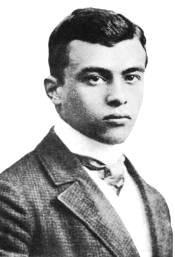
Der Todesengel
I
Mit Trommelwirbeln geht der Hochzeitszug,
in seidner Sänfte wird die Braut getragen,
durch rote Wolken weißer Rosse Flug,
die ungeduldig goldne Zäume nagen.
Der Todesengel harrt in Himmelshallen
als wüster Freier dieser zarten Braut.
Und seine wilden, dunklen Haare fallen
die Stirn hinab, auf der der Morgen graut.
Die Augen weit, vor Mitleid glühend offen
wie trostlos starrend hin zu neuer Lust,
ein grauenvolles, nie versiegtes Hoffen,
ein Traum von Tagen, die er nie gewußt.
II
Er kommt aus einer Höhle, wo ein Knabe
ihn als Geliebte wunderzart umfing.
Er flog durch seinen Traum als Schmetterling
und ließ ihn Meere sehn als Morgengabe.
Und Lüfte Indiens, wo an Fiebertagen
das greise Meer in gelbe Buchten rennt.
Die Tempel, wo die Priester Zimbeln schlagen,
um Öfen tanzend, wo ein Mädchen brennt.
Sie schluchzt nur leise, denn der Schar Gesinge
zeigt ihr den Götzen, der auf Wolken thront
und Totenschädel trägt als Schenkelringe,
der Flammenqual mit schwarzen Küssen lohnt.
Betrunkne tanzen nackend zwischen Degen,
und einer stößt sich in die Brust und fällt.
Und während blutig sich die Schenkel regen,
versinkt dem Knaben Tempel, Traum und Welt.
III
Dann flog er hin zu einem alten Manne
und kam ans Bett als grüner Papagei.
Und krächzt das Lied: »O schmähliche Susanne!«
Die längst vergessne Jugendlitanei.
Der stiert ihn an. Aus Augen glasig blöde
blitzt noch ein Strahl. Ein letztes böses Lächeln
zuckt um das zahnlose Maul. Des Zimmers Öde
erschüttert jäh ein lautes Todesröcheln.
IV
Die Braut friert leise unterm leichten Kleide.
Der Engel schweigt. Die Lüfte ziehn wie krank.
Er stürzt auf seine Knie. Nun zittern beide.
Vom Strahl der Liebe, der aus Himmeln drang.
Posaunenschall und dunkler Donner lachen.
Ein Schleier überflog das Morgenrot.
Als sie mit ihrer zärtlichen und schwachen
Bewegung ihm den Mund zum Küssen bot.
Jakob van Hoddis
(1887 – 1942)
Der Todesengel (Gedicht)
• fleursdumal.nl magazine
More in: Archive G-H, Archive G-H, Hoddis, Jakob van
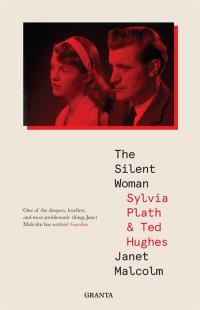 The Silent Woman is a brilliant, elegantly reasoned meditation on the nature of biography.
The Silent Woman is a brilliant, elegantly reasoned meditation on the nature of biography.
Janet Malcolm (author of Reading Chekhov, The Journalist and the Murderer, In the Freud Archives) examines the biographies of Sylvia Plath, with particular focus on Anne Stevenson’s controversial Bitter Fruit, to discover how Plath became the enigma of literary history, and how the legend continues to exert such a hold on our imaginations.
Janet Malcolm‘s books include Reading Chekhov, In the Freud Archives, The Silent Woman: Sylvia Plath and Ted Hughes and Psychoanalysis: The Impossible Profession. Born in Prague, she grew up in New York, where she now lives.
“One of the deepest, loveliest, and most problematic things Janet Malcolm has written. It is so subtle, so patiently analytical, and so true that it is difficu’lt to envisage anyone writing again about Plath and Hughes.” Guardian
The Silent Woman
by Janet Malcolm
Published: 02/04/2020
ISBN: 9781783786237
Granta Books
224 pages
Paperback
£10
# more biographies
• fleursdumal.nl magazine
More in: #Biography Archives, - Book News, - Book Stories, Archive M-N, Sylvia Plath
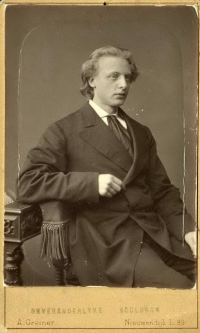
Zij komt
Gij, berken, buigt uw ranke loovertrossen!
Strooit, rozen, op het zand èn sneeuw èn blad!
Gij, zwaatlende olmen, nijgt u naar het pad,
En kust den dauw van sidderende mossen!
En, snelgewiekte liederen der bosschen,
Stemt aan én zang én lof! En, klimveil, dat
Den slanken, diepbeminden beuk omvat,
Druk hechter aan de twijgen u, de rossen!
Voorzegger, die uzelven roept, o kom,
En roep uw koekkoek duizend blijde keeren,
En fladder aan, vergulde vlinderdrom!
Zij zweeft hierheen, die zon en zomer eeren:
De lof van hare schoonheid klinke alom,
Waar zon en zomer te beminnen leeren!
Jacques Perk
(1859 – 1881)
Zij komt
• fleursdumal.nl magazine
More in: Archive O-P, CLASSIC POETRY, Jacques Perk

Laat hier jouw stem voor cultuur horen!
• fleursdumal.nl magazine
More in: - Book Lovers, Art & Literature News, AUDIO, CINEMA, RADIO & TV, DANCE & PERFORMANCE, Design, Fashion, Graffity, Illustrators, Illustration, LITERARY MAGAZINES, MUSIC, THEATRE

• fleursdumal.nl magazine
More in: AUDIO, CINEMA, RADIO & TV, Black Lives Matter, DICTIONARY OF IDEAS, The talk of the town
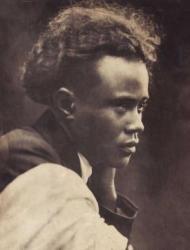
Été
Sème, sème l’été,
sème des grains d’eau lumineux.
Plante, plante l’été,
plante des tiges d’eau frêles.
Sème, sème, plante, plante,
sème et plante dans le crépuscule.
Qui ou quoi moissonnera les épis ?
Qui ou quoi cueillera les fruits ?
Est-ce le petit oiseau brûlé de soif
venu des sylves gorgées de cours d’eau pure
celée, celée sous des ronces ?
Ou l’abeille qui est comme ivre de soleil
et qui titube au cœur des branches ?
Ou la femme-enfant qui vient de dénouer sa chevelure
et qui a lavé des effets au bord du fleuve ?
Ou bien une source, quelque part, s’est-elle tarie
au point que son jaillissement éteint regrette les fleuves ?
Mais n’est-ce pas plutôt qu’un fleuve bruissant,
ici ou là, n’arrive plus jusqu’au golfe,
et n’arrive plus à grossir la mer ?
Ou que la plantation de ceux qui sont sous la terre
devient deux fois ombre dans les ténèbres ?
Je crois, moi, que ce sont les plantes
qui brûlent d’offrir à mes yeux parfois bleus,
et brûlent d’offrir au jour frais éclos
qui fermera ses ailes au seuil de la nuit,
des épis et des fruits fécondés par l’été.
Jean-Joseph Rabearivelo
(1901? 1903? – 1937)
Été (poème)
• fleursdumal.nl magazine
More in: Archive Q-R, Archive Q-R, Jean-Joseph Rabearivelo

Song of the banner
at daybreak
Poet
O a new song, a free song,
Flapping, flapping, flapping, flapping, by sounds, by voices clearer,
By the wind’s voice and that of the drum,
By the banner’s voice and child’s voice and sea’s voice and father’s voice,
Low on the ground and high in the air,
On the ground where father and child stand,
In the upward air where their eyes turn,
Where the banner at daybreak is flapping.
Words! bookwords! what are you?
Words no more, for hearken and see,
My song is there in the open air, and I must sing,
With the banner and pennant a-flapping.
I’ll weave the chord and twine in,
Man’s desire and babe’s desire, I’ll twine them in, I’ll put in life,
I’ll put the bayonet’s flashing point, I’ll let bullets and slugs whizz,
(As one carrying a symbol and menace far into the future,
Crying with trumpet voice, _Arouse and beware! Beware and arouse!_)
I’ll pour the verse with streams of blood, full of volition, full of joy.
Then loosen, launch forth, to go and compete,
With the banner and pennant a-flapping.
Pennant
Come up here, bard, bard,
Come up here, soul, soul,
Come up here, dear little child,
To fly in the clouds and winds with me, and play with the measureless light.
Child
Father what is that in the sky beckoning to me with long finger?
And what does it say to me all the while?
Father
Nothing my babe you see in the sky,
And nothing at all to you it says–but look you my babe,
Look at these dazzling things in the houses, and see you the money-shops opening,
And see you the vehicles preparing to crawl along the streets with goods;
These, ah these, how valued and toil’d for these!
How envied by all the earth.
Poet
Fresh and rosy red the sun is mounting high,
On floats the sea in distant blue careering through its channels,
On floats the wind over the breast of the sea setting in toward land,
The great steady wind from west or west-by-south,
Floating so buoyant with milk-white foam on the waters.
But I am not the sea nor the red sun,
I am not the wind with girlish laughter,
Not the immense wind which strengthens, not the wind which lashes,
Not the spirit that ever lashes its own body to terror and death,
But I am that which unseen comes and sings, sings, sings,
Which babbles in brooks and scoots in showers on the land,
Which the birds know in the woods mornings and evenings,
And the shore-sands know and the hissing wave, and that banner and pennant,
Aloft there flapping and flapping.
Child
O father it is alive–it is full of people–it has children,
O now it seems to me it is talking to its children,
I hear it–it talks to me–O it is wonderful!
O it stretches–it spreads and runs so fast–O my father,
It is so broad it covers the whole sky.
Father
Cease, cease, my foolish babe,
What you are saying is sorrowful to me, much it displeases me;
Behold with the rest again I say, behold not banners and pennants aloft,
But the well-prepared pavements behold, and mark the solid-wall’d houses.
Banner and Pennant
Speak to the child O bard out of Manhattan,
To our children all, or north or south of Manhattan,
Point this day, leaving all the rest, to us over all–and yet we know not why,
For what are we, mere strips of cloth profiting nothing,
Only flapping in the wind?
Poet
I hear and see not strips of cloth alone,
I hear the tramp of armies, I hear the challenging sentry,
I hear the jubilant shouts of millions of men, I hear Liberty!
I hear the drums beat and the trumpets blowing,
I myself move abroad swift-rising flying then,
I use the wings of the land-bird and use the wings of the sea-bird, and look down as from a height,
I do not deny the precious results of peace, I see populous cities with wealth incalculable,
I see numberless farms, I see the farmers working in their fields or barns,
I see mechanics working, I see buildings everywhere founded, going up, or finished,
I see trains of cars swiftly speeding along railroad tracks drawn by the locomotives,
I see the stores, depots, of Boston, Baltimore, Charleston, New Orleans,
I see far in the West the immense area of grain, I dwell awhile hovering,
I pass to the lumber forests of the North, and again to the Southern plantation, and again to California;
Sweeping the whole I see the countless profit, the busy gatherings, earn’d wages,
See the Identity formed out of thirty-eight spacious and haughty
States, (and many more to come,)
See forts on the shores of harbors, see ships sailing in and out;
Then over all, (aye! aye!) my little and lengthen’d pennant shaped like a sword,
Runs swiftly up indicating war and defiance–and now the halyards have rais’d it,
Side of my banner broad and blue, side of my starry banner,
Discarding peace over all the sea and land.
Banner and Pennant
Yet louder, higher, stronger, bard! yet farther, wider cleave!
No longer let our children deem us riches and peace alone,
We may be terror and carnage, and are so now,
Not now are we any one of these spacious and haughty States, (nor any five, nor ten,)
Nor market nor depot we, nor money-bank in the city,
But these and all, and the brown and spreading land, and the mines below, are ours,
And the shores of the sea are ours, and the rivers great and small,
And the fields they moisten, and the crops and the fruits are ours,
Bays and channels and ships sailing in and out are ours–while we over all,
Over the area spread below, the three or four millions of square miles, the capitals,
The forty millions of people,–O bard! in life and death supreme,
We, even we, henceforth flaunt out masterful, high up above,
Not for the present alone, for a thousand years chanting through you,
This song to the soul of one poor little child.
Child
O my father I like not the houses,
They will never to me be any thing, nor do I like money,
But to mount up there I would like, O father dear, that banner I like,
That pennant I would be and must be.
Father
Child of mine you fill me with anguish,
To be that pennant would be too fearful,
Little you know what it is this day, and after this day, forever,
It is to gain nothing, but risk and defy every thing,
Forward to stand in front of wars–and O, such wars!–what have you to do with them?
With passions of demons, slaughter, premature death?
Banner
Demons and death then I sing,
Put in all, aye all will I, sword-shaped pennant for war,
And a pleasure new and ecstatic, and the prattled yearning of children,
Blent with the sounds of the peaceful land and the liquid wash of the sea,
And the black ships fighting on the sea envelop’d in smoke,
And the icy cool of the far, far north, with rustling cedars and pines,
And the whirr of drums and the sound of soldiers marching, and the hot sun shining south,
And the beach-waves combing over the beach on my Eastern shore, and my Western shore the same,
And all between those shores, and my ever running Mississippi with bends and chutes,
And my Illinois fields, and my Kansas fields, and my fields of Missouri,
The Continent, devoting the whole identity without reserving an atom,
Pour in! whelm that which asks, which sings, with all and the yield of all,
Fusing and holding, claiming, devouring the whole,
No more with tender lip, nor musical labial sound,
But out of the night emerging for good, our voice persuasive no more,
Croaking like crows here in the wind.
Poet
My limbs, my veins dilate, my theme is clear at last,
Banner so broad advancing out of the night, I sing you haughty and resolute,
I burst through where I waited long, too long, deafen’d and blinded,
My hearing and tongue are come to me, (a little child taught me,)
I hear from above O pennant of war your ironical call and demand,
Insensate! insensate! (yet I at any rate chant you,) O banner!
Not houses of peace indeed are you, nor any nor all their prosperity,
(if need be, you shall again have every one of those houses to destroy them,
You thought not to destroy those valuable houses, standing fast, full of comfort, built with money,
May they stand fast, then? not an hour except you above them and all stand fast;)
O banner, not money so precious are you, not farm produce you, nor the material good nutriment,
Nor excellent stores, nor landed on wharves from the ships,
Not the superb ships with sail-power or steam-power, fetching and carrying cargoes,
Nor machinery, vehicles, trade, nor revenues–but you as henceforth I see you,
Running up out of the night, bringing your cluster of stars, (ever-enlarging stars,)
Divider of daybreak you, cutting the air, touch’d by the sun, measuring the sky,
(Passionately seen and yearn’d for by one poor little child,
While others remain busy or smartly talking, forever teaching thrift, thrift;)
O you up there! O pennant! where you undulate like a snake hissing so curious,
Out of reach, an idea only, yet furiously fought for, risking bloody death, loved by me,
So loved–O you banner leading the day with stars brought from the night!
Valueless, object of eyes, over all and demanding all–(absolute owner of all)–O banner and pennant!
I too leave the rest–great as it is, it is nothing–houses, machines are nothing–I see them not,
I see but you, O warlike pennant! O banner so broad, with stripes, I sing you only,
Flapping up there in the wind.
Walt Whitman
(1819 – 1892)
Song of the banner at daybreak
From: Leaves of grass
• fleursdumal.nl magazine
More in: Archive W-X, Archive W-X, Whitman, Walt
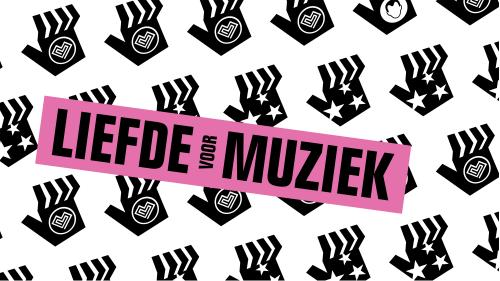
De campagne ‘Liefde voor Muziek’ is een initiatief van de voltallige Nederlandse muziekindustrie. Ruim 3000 artiesten, organisaties en bedrijven uit de gehele breedte (pop, jazz, klassiek en elektronische muziek) van de muziekbranche steunen de campagne met hart en ziel.
In maart van dit jaar verstomde als gevolg van het coronavirus alle livemuziek in poppodia, concertzalen en op festivals even onverwachts als abrupt. Veel artiesten, gezonde bedrijven en ZZP’ers hebben geen omzet of inkomen meer. Tienduizenden banen en knowhow dreigen verloren te gaan. Nederland heeft geweldige muzikanten. Nationaal en internationaal succesvolle sterren in alle genres van de pop, dance en jazz. Deze kunnen optreden dankzij een groot ecosysteem van 150.000 professionals.
De organisatie van ‘LIEFDE VOOR MUZIEK’! wil de regering laten (in)zien hoe omvangrijk en divers de Nederlandse muziekindustrie is, wat haar culturele en economische waarde is.
Zij vragen de muziekliefhebber om de petitie ‘Liefde voor Muziek’ te tekenen. Laat weten dat je het voortbestaan van live muziek (festivals en concerten) in Nederland ook belangrijk vindt.
Meer informatie op website:

• fleursdumal.nl magazine
More in: # Music Archive, Art & Literature News, AUDIO, CINEMA, RADIO & TV, The talk of the town
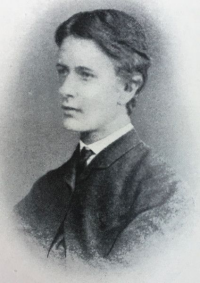
A Song
The world is young today:
Forget the gods are old,
Forget the years of gold
When all the months were May.
A little flower of Love
Is ours, without a root,
Without the end of fruit,
Yet ― take the scent thereof.
There may be hope above,
There may be rest beneath;
We see them not, but Death
Is palpable ― and Love.
Digby Mackworth Dolben
(1848 – 1867)
A Song
• fleursdumal.nl magazine
More in: Archive C-D, Archive C-D, Digby Mackworth Dolben
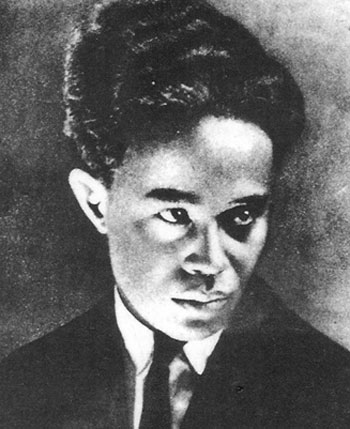
Le poème
Paroles pour chant, dis-tu, paroles pour chant,
ô langue de mes morts,
paroles pour chant, pour désigner
les idées que l’esprit a depuis longtemps conçues
et qui naissent enfin et grandissent
avec des mots pour langes –
des mots lourds encore de l’imprécision de l’alphabet,
et qui ne peuvent pas encore danser avec le vocabulaire,
n’étant pas encore aussi souples que les phrases ordonnées,
mais qui chantent déjà aux lèvres
comme un essaim de libellules bleues au bord d’un fleuve
salue le soir.
Paroles pour chant, dis-tu, paroles pour chant,
paroles pour chant, pour désigner
le frêle écho du chant intérieur
qui s’amplifie et retentit,
tentant de charmer le silence du livre
et les landes de la mémoire,
ou les rives désertes des lèvres
et l’angoisse des cœurs.
Et les paroles deviennent de plus en plus vivantes,
que tu croyais en quête du Chant ;
mais elles deviennent aussi de plus en plus fluides et ténues,
comme cette brise qui vient des palmiers lointains
pour mourir sur les cimes sourcilleuses.
Elles deviennent davantage des chants,
elles deviennent elles-mêmes – ce qu’elles ont toujours été
jusqu’ici, en vérité.
Et je voudrais changer, je voudrais rectifier
et dire :
chants en quête de paroles
pour peupler le silence du livre
et planter les landes de la mémoire,
ou pour semer des fleurs aux rives désertes des lèvres
et délivrer les cœurs,
ô langue de mes morts
qui te modules aux lèvres d’un vivant
comme les lianes qui fleurissent les tombeaux.
Jean-Joseph Rabearivelo
(1901? 1903? – 1937)
Le poème (poème)
• fleursdumal.nl magazine
More in: Archive Q-R, Archive Q-R, Jean-Joseph Rabearivelo
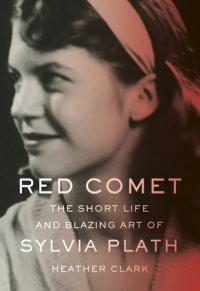 The highly anticipated new biography of Sylvia Plath that focuses on her remarkable literary and intellectual achievements, while restoring the woman behind the long-held myths about her life and art.
The highly anticipated new biography of Sylvia Plath that focuses on her remarkable literary and intellectual achievements, while restoring the woman behind the long-held myths about her life and art.
With a wealth of never-before-accessed materials–including unpublished letters and manuscripts; court, police, and psychiatric records; and new interviews–Heather Clark brings to life the brilliant daughter of Wellesley, Massachusetts.
Sylvia Plath had poetic ambition from a very young age and was an accomplished, published writer of poems and stories even before she became a star English student at Smith College in the early 1950s. Determined not to read Plath’s work as if her every act, from childhood on, was a harbinger of her tragic fate, Clark here evokes a culture in transition, in the shadow of the atom bomb and the Holocaust, as she explores Plath’s world: her early relationships and determination not to become a conventional woman and wife; her conflicted ties to her well-meaning, widowed mother; her troubles at the hands of an unenlightened mental-health industry; her Cambridge years and thunderclap meeting with Ted Hughes, a marriage of true minds that would change the course of poetry in English; and much more.
Clark’s clear-eyed sympathy for Hughes, his lover Assia Wevill, and the other demonized players in the arena of Plath’s suicide promotes a deeper understanding of her final days, with their outpouring of first-rate poems. Along with illuminating readings of the poems themselves, Clark’s meticulous, compassionate research brings us closer than ever to the spirited woman and visionary artist who blazed a trail that still lights the way for women poets the world over.
Heather Clark earned her bachelor’s degree in English Literature from Harvard University and her doctorate in English from Oxford University. Her awards include a National Endowment for the Humanities Public Scholar Fellowship; a Leon Levy Biography Fellowship at the City University of New York; and a Visiting U.S. Fellowship at the Eccles Centre for American Studies, British Library. A former Visiting Scholar at the Oxford Centre for Life-Writing, she is the author of The Grief of Influence: Sylvia Plath and Ted Hughes and The Ulster Renaissance: Poetry in Belfast 1962-1972. Her work has appeared in publications including Harvard Review and The Times Literary Supplement, and she recently served as a consultant for the BBC documentary Sylvia Plath: Life Inside the Bell Jar. She divides her time between Chappaqua, New York, and Yorkshire, England, where she is Professor of Contemporary Poetry at the University of Huddersfield.
Red Comet
The Short Life and Blazing Art of Sylvia Plath
By Heather Clark
Hardcover
1152 Pages
$40.00
Oct 06, 2020
ISBN 9780307961167
Published by Knopf
$40.00
# new biography
• fleursdumal.nl magazine
More in: #Biography Archives, - Archive Tombeau de la jeunesse, - Book Lovers, - Book News, Archive C-D, Archive G-H, Archive O-P, Archive O-P, Plath, Sylvia
Thank you for reading Fleurs du Mal - magazine for art & literature